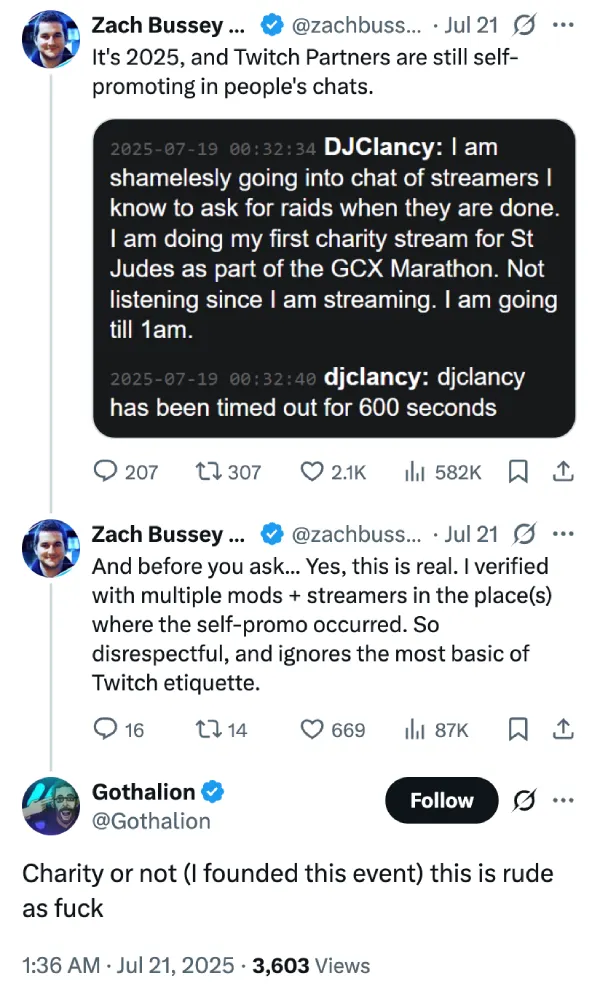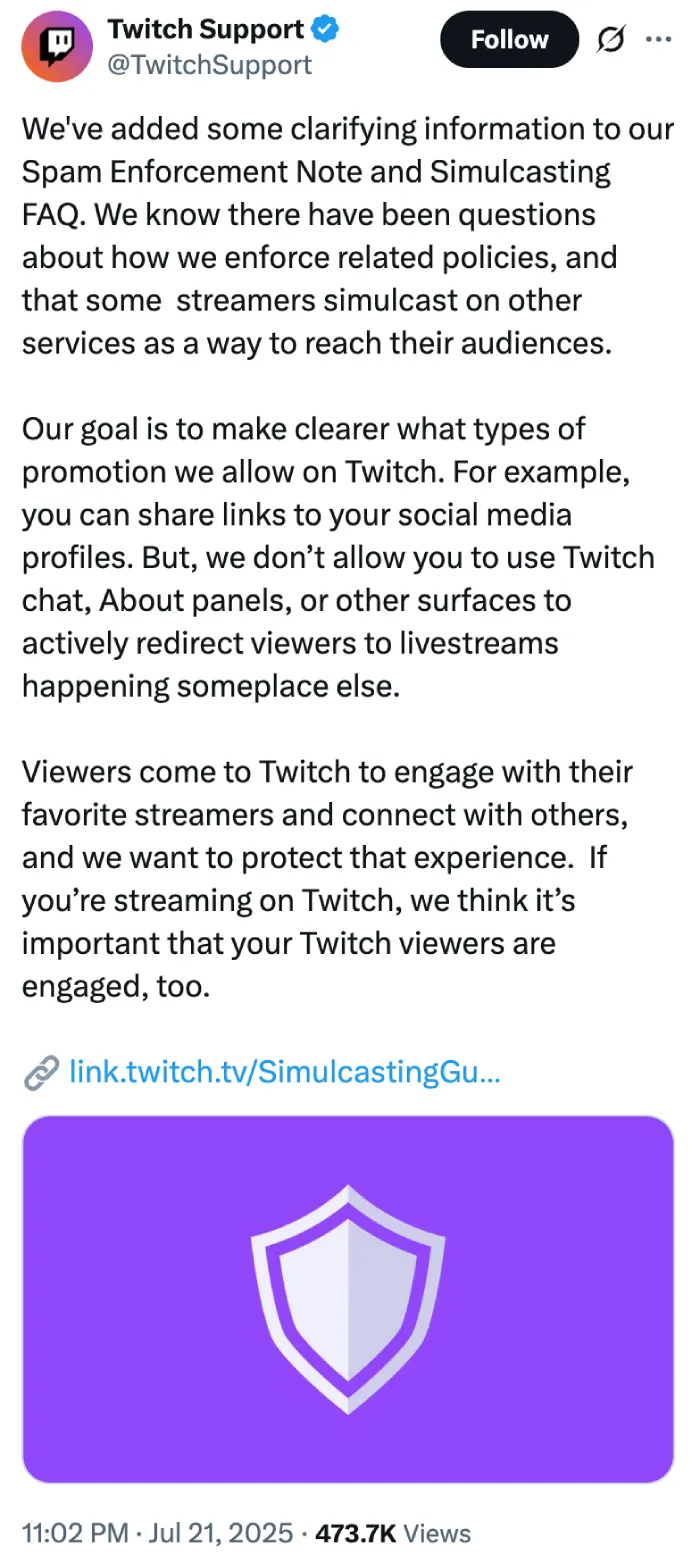Twitch CEO Dan Clancy stirred up controversy over the weekend by dropping into multiple streamers’ chats to promote his own charity stream for St. Jude Children’s Research Hospital. He posted messages like “Going into chat of streamers I KNOW to ask for raids for my St. Judes charity stream starting at 2pm PT today,” which many saw as a clear violation of unwritten rules against self-promotion.
Streamers and mods verified the incidents, and the backlash was immediate, with Gothalion, the founder of the GuardianCon event where some of this happened, calling it “rude as fu*k.” This kind of behavior has long been taboo on Twitch, often resulting in timeouts or bans for regular users.
But the real story here lies in the irony of the timing. Just one day after Clancy’s chat invasions on July 20, Twitch unveiled significant updates to its spam enforcement and simulcasting policies, designed to curb promotional tactics that pull viewers away from the platform. The changes, outlined in a new FAQ, emphasize protecting the Twitch experience by prohibiting streamers from using site features to direct audiences elsewhere. Specifically, the policy states, “We don’t allow you to use Twitch chat, About panels, or other surfaces to actively redirect viewers to livestreams happening someplace else.”
This means no pinned messages urging fans to switch to Kick or YouTube, no links in bios that point to ongoing streams on competitors, and no incentives for viewers to leave Twitch mid-broadcast.
The updates aim to clarify ongoing confusion around multistreaming, where creators broadcast simultaneously on multiple platforms to expand their reach. Twitch now stresses that if you’re live on their site, the focus should remain there, ensuring viewers get an “equal or better experience” without being nudged away.
You can still share general social media links, but anything that actively promotes a rival stream is off-limits. Zach Bussey, who puts the spotlight on such changes in the industry, described the changes as “confusing,” noting they tighten what can appear in bios and outright ban directing users to other sites.
Reactions from the community have been mixed but largely critical, with many pointing out the hypocrisy given Clancy’s actions. On a Reddit thread discussing the incident, one user commented: “No way the CEO doesn’t know twitch etiquette.” Another said, “Master class in how to prove you are completely out of touch with your company’s platform. Amazing work.”
In a year where Twitch’s viewership has been slipping, these policy tweaks reflect a defensive strategy to retain users and creators. Yet Clancy’s self-promotion blunder undermines the message, raising questions about whether the rules apply evenly. As one X user put it, the platform’s insecurity about rivals is “actually crazy.” So for Twitch in 2025, leading by example might be the best way to stream ahead of the drama.
Feel free to share your thoughts on the situation in the comments section below.
TechIssuesToday primarily focuses on publishing 'breaking' or 'exclusive' tech news. This means, we are usually the first news website on the whole Internet to highlight the topics we cover daily. So far, our stories have been picked up by many mainstream technology publications like The Verge, Macrumors, Forbes, etc. To know more, head here.




